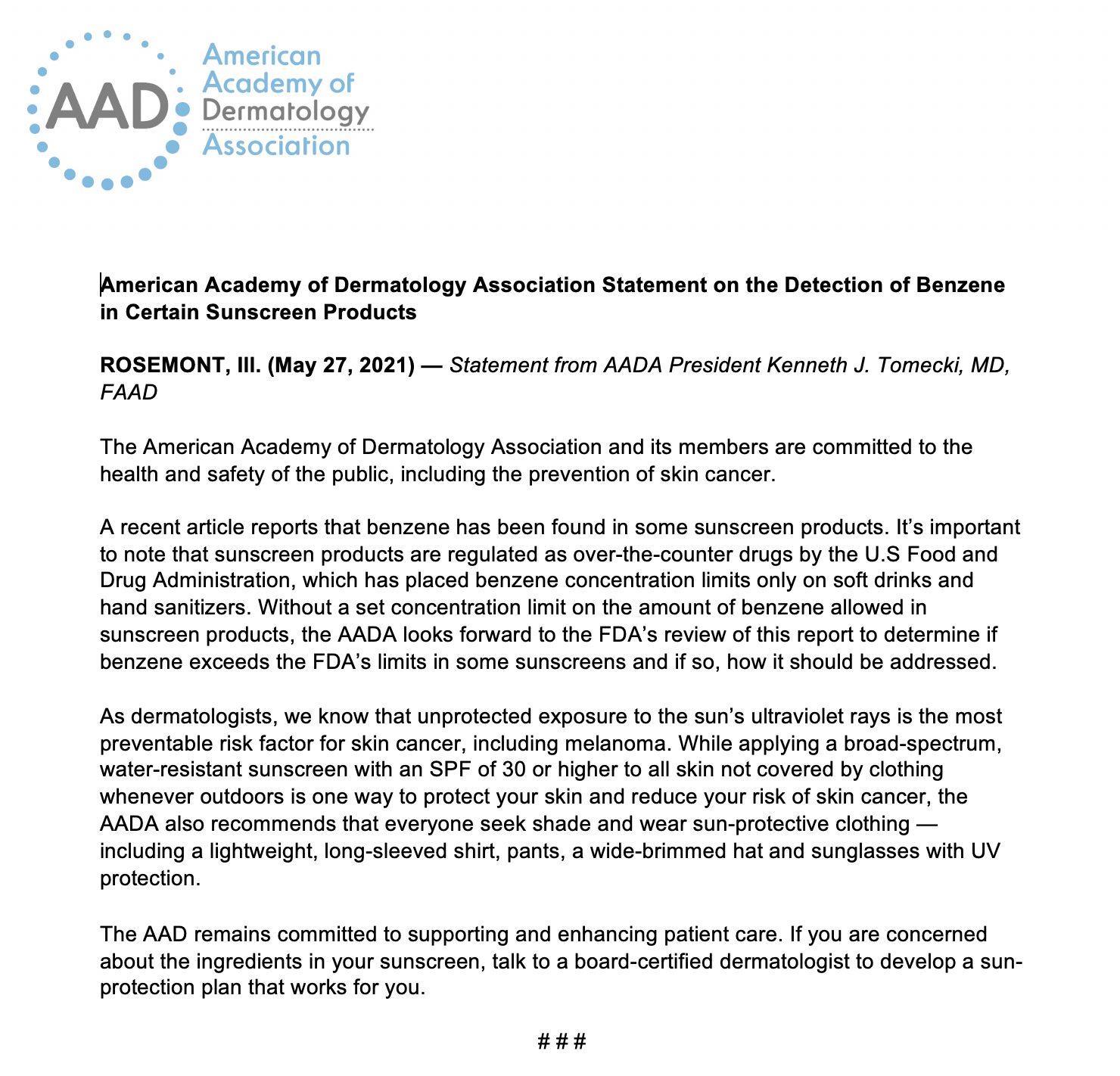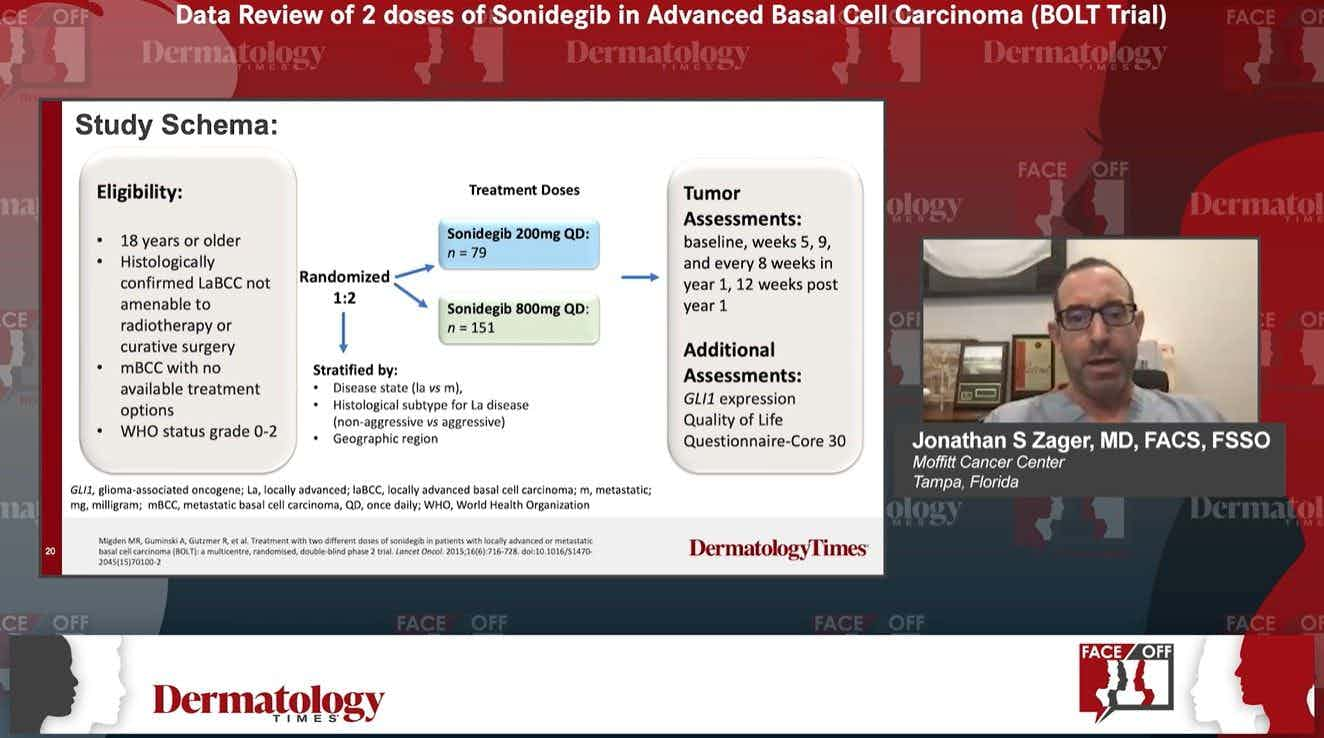- Acne
- Actinic Keratosis
- Aesthetics
- Alopecia
- Atopic Dermatitis
- Buy-and-Bill
- COVID-19
- Case-Based Roundtable
- Chronic Hand Eczema
- Drug Watch
- Eczema
- General Dermatology
- Hidradenitis Suppurativa
- Melasma
- NP and PA
- Pediatric Dermatology
- Pigmentary Disorders
- Practice Management
- Precision Medicine and Biologics
- Prurigo Nodularis
- Psoriasis
- Psoriatic Arthritis
- Rare Disease
- Rosacea
- Skin Cancer
- Vitiligo
- Wound Care
Article
Detectable Levels of Benzene Noted in Some Sunscreen Batches
Author(s):
A recent test found various brands and batches of sunscreen and after-sun care products contained benzene, a potential carcinogen.
Valisure, a pharmacy dedicated to batch testing medications before they reach consumers, found in a recent test that 78 different sunscreen and after-sun care products contained benzene, a potential carcinogen.
According to the U. S. Center for Disease Control and Prevention (CDC), the World Health Organization (WHO), U.S. Department of Health and Human Services, and various other regulatory agencies, benzene is known to cause cancer in humans. The National Institute for Occupational Safety and Health (NIOSH) also defines benzene as a carcinogen and exposure can include “inhalation, skin absorption, ingestion, and skin and/or eye contact.”
In the laboratory test conducted by Valisure, 294 unique batches of sun care products from 69 different companies were examined.
Results of the test found 27% of samples tested contained detectable benzene, while some batches contained up to 3 times the FDA concentration limit of 2 parts per million (ppm). With the benzene-detected product batches ranging from gels, sprays, and lotions in both mineral and chemical formulations.
“There is not a safe level of benzene that can exist in sunscreen products,” said Christopher Bunick, MD, PhD, associate professor of dermatology at Yale University and member of Dermatology Times®’ editorial advisory board. “Even benzene at 0.1 ppm in a sunscreen could expose people to excessively high nanogram amounts of benzene.”
Benzene has been associated with blood cancers such as leukemia. What makes these findings "particularly concerning", according to Valisure, is that these products are absorbed through the skin and multiple studies conducted by FDA researches have shown chemicals in sunscreen products are found in the blood at high levels following skin application.
TikTok from Dustin Portela, DO (@208skindoc) discussing these findings.
This is not the first time Valisure has identified harmful contaminants in consumer products. In March, it released a Citizen Petition asking the FDA to recall various brands of hand sanitizer after detecting benzene contamination in multiple batches.
Later on in April, Scentsational Soaps & Candles issued a voluntary recall of its scented hand sanitizers, due to the presence of benzene, methanol, and acetaldehyde.
Valisure is now requesting the FDA recall the identified sunscreens and after-sun care products and are asking for more defined limits for benzene contamination in cosmetic and drug products. Valisure also notes that not all sunscreen products contain benzene and urges the continued use of uncontaminated products available to help protect against ultraviolet radiation (UV).
“Benzene is one of the most studied and concerning human carcinogens known to science,” said David Light, founder and CEO of Valisure. “Its association with forming blood cancers in humans has been shown in numerous studies at trace levels of parts per million and below. The presence of this known human carcinogen in products widely recommended for the prevention of skin cancer and that are regularly used by adults and children is very troubling.”
Watch our interview with Valisure Founder and CEO David Light, here.
When the FDA was asked by Dermatology Times® for a comment, a spokeperson said "the FDA does not comment on third-party research, but evaluates it as part of the body of evidence to further our understanding about a particular issue and assist in our mission to protect public health."
Statement from American Academy of Dermatology Association President Kenneth J. Tomecki, MD, FAAD:

While additional testing is needed, Bunick added that sunscreen should still be utilized, as well as other forms of sun protection to protect against UV radiation.
Click the documents below to find out which products contain and do not contain benzene, as well as tips for responsible disposal of potentially contaminated products.
- List of products where benzene was detected.
- List of products where benzene was not detected.
- Responsible Disposal of Potentially Contaminated Products.
This story will continued to be updated with the latest information.
Reference:
1. Valisure detects benzene in sunscreen. Valisure. Published May 20, 2021. Accessed May 25, 2021. https://www.valisure.com/blog/valisure-news/valisure-detects-benzene-in-sunscreen/
Newsletter
Like what you’re reading? Subscribe to Dermatology Times for weekly updates on therapies, innovations, and real-world practice tips.















